Perverse Playground: Jack L. Chalker’s "Midnight at the Well of Souls"
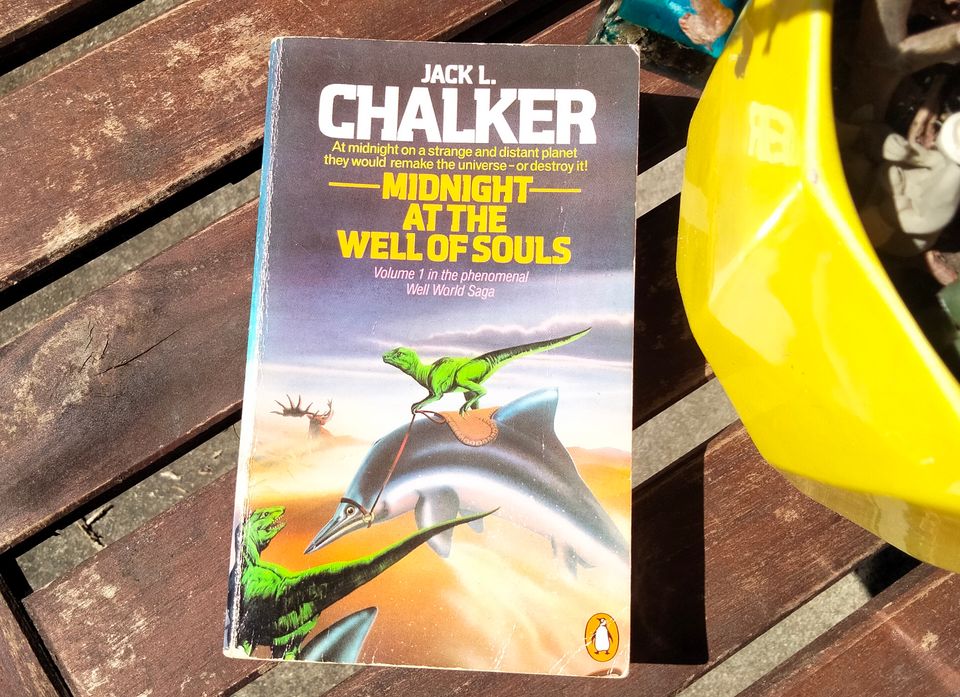
“Do not read Jack Chalker. Do not.” “One of the creepiest writers of the 1980’s, and that is saying something.” “Makes the infamous Gor books seem like mild daydream musings in comparison.”
These are some of the sentiments expressed online about Jack L. Chalker, a prolific author in the 1970s and 80s whose reputation has cratered in the years since. When he’s remembered at all, it’s as a writer who obsessively injected his sexual fetishes into every corner of his fiction.
So it was with some trepidation that I cracked open Midnight at the Well of Souls (1977), the first in Chalker’s long Well World series. But I was intrigued, too. I’ve always had a soft spot for authors who let their kinks show in their stories. I have to smile when Quentin Tarantino shoots another loving close-up of a woman’s feet, or Sarah J. Maas introduces another gorgeous boyfriend with wings. A fetish can be idiosyncratic, even charming, so long as it’s the weird, funny kind of fetish and not the kind that gets you put on a list. The question is, which kind is it in Chalker’s work? And the answer is, well, both, a lot of both.
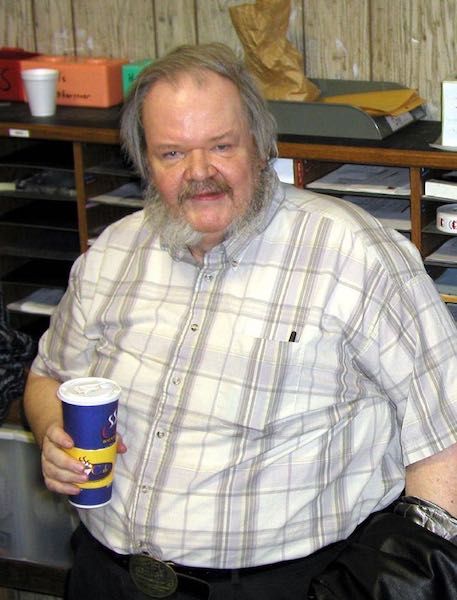
Midnight is an unpleasant book in many ways. Although it has little explicit sexual content, everything is covered in a faint patina of perversion. There is an unwholesome focus on hypnosis and mind control, and a few moments that display a deep lack of empathy for victims of sexual violence.
On the other hand, Midnight is also vibrant, inventive, and highly readable. And, for a book written in the 70s, it’s quite explicitly pro-gay, pro-trans, and touches sensitively on disability. It is, as the saying goes, a land of contrasts.
Let’s begin with the Well World itself: a bizarre planet created by long-dead aliens, administered by an unseen computer with the power to rewrite and control reality. The Well World is divided into hundreds of hexes, each with their own environment tailored for a particular sentient species. Some hexes also have limitations on their technology: bring a gun into a “non-tech” hex and it simply ceases to work. If that wasn’t enough, magic is possible in certain hexes—again through the grace of the computer.
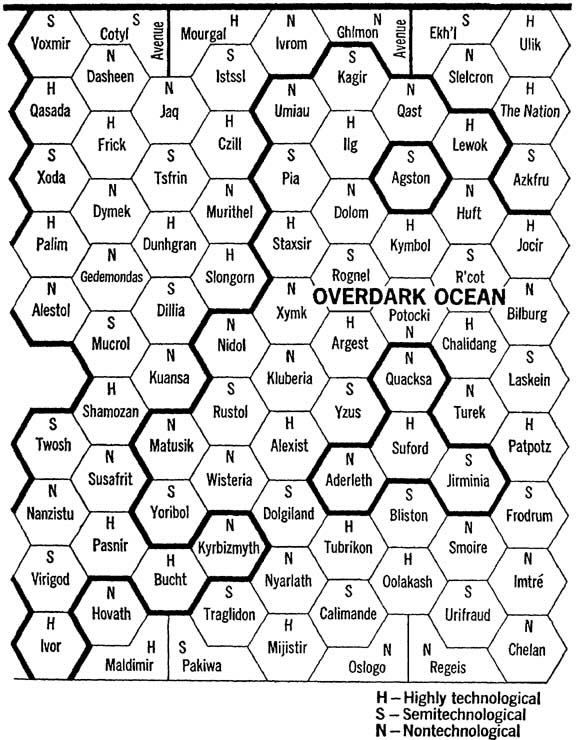
The universe is littered with one-way portals that lead to the Well World. People who stumble through these portals are given a brief induction in a neutral area called ‘Zone’, after which they are forced to step through the Zone Gate, and this is where things get freaky. Every such immigrant is assigned randomly to a hex, after which they are physically transformed into the sentient species of that hex. Characters in the novel are turned into centaurs, plant-people, hermaphroditic mermaids, and many more. This motif of forced transformation was apparently an obsession for Chalker across his entire career; it appears in nearly all his books in some form.
The intricate yet arbitrary rules of the Well World, combined with its vast breadth and variety, give it the feeling of a writer’s playground: a place of infinite possibility, where any trope or genre could be waiting just over the horizon. It’s also a distant ancestor to the videogame worlds of isekai and LitRPG fiction. Midnight was first published in 1977, when simulated worlds were in their infancy. (The early text adventure game Zork was released the same year.) Yet there’s something prescient in the way Chalker describes the god-computer’s powers, which reduce all of reality to mathematics. As one character explains:
“All matter and energy are in some kind of mathematical proportion… If I knew the formula for Elkinos Skander, or Varnett Mathematics Two Sixty-One, I could alter, or even abolish, our existence. Even things like time or distance, the best constants, could be altered or abolished. If I knew your formula I could, given one condition, not only change you into, say, a chair, but alter all events so that you would have always been a chair!”
From here, it’s no great distance to the LitRPG practice of actually describing characters by their numerical stat sheets.

But let’s proceed to the actual plot. Four characters fall through a portal into the Well World: the dashing but melancholy space captain Nathan Brazil; Vardia Diplo 1261, a brainwashed clone from the nightmarish Comworlds; Datham Hain, a vile “sponge merchant” who controls people by exposing them to a fatally addictive poison; and Wu Julee, Hain’s miserable sponge-infected slave.
As per the rules outlined above, all these characters face reassignment into new bodies, like a respin on the roulette wheel of life. And it’s a case of “the last shall be first and the first shall be last”, with the transformations serving a kind of cosmic justice. Wu Julee is cured of her horrible affliction and given space to heal among her new species, the gentle and polyamorous centaurs. Vardia becomes a genderless plant-person and is granted the education that her society always denied her. But for Datham Hain, an awful punishment is in store. First he is turned into a gigantic, loathsome fly-alien. Then, captured by other flies, he is hypnotised, mentally reprogrammed, humiliated, and made to serve as a dung-cleaner who eats his own shit. Things continue to get worse for him from there.
Once the characters have adjusted to their new forms, the main storyline begins. Each of these characters possesses knowledge that could unlock access to the Well World control system, allowing whoever claims it to assert godlike control over the entire universe. Various factions move to control or support the protagonists, and a long fantasy-style journey begins, across many hexes, to reach the titular Well of Souls.
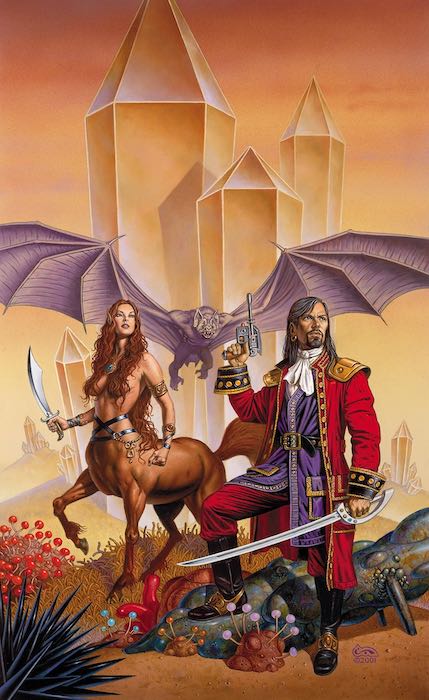
Nathan Brazil, by luck or fate, has retained his human form. He travels along with Wu Julee, the centaur, who now takes the name Wuju. Remembering his kindness to her in their previous existence, Wuju becomes enamoured of Brazil. He rejects her advances mainly on the grounds of physical difference: “You know damned well our bodies don’t match. Anything like sex just won’t work for us now. So get those ideas out of your head!”
But later in their journey, calamity strikes. Brazil falls down a cliff, breaking every bone in his body, and his life can only be saved by a magical soul transfer ritual. The only body available to receive his consciousness is that of a gigantic alien antelope.
Living in the antelope’s body is unnatural and difficult. He can’t talk, and if he loses concentration his animal instincts will take over: the body runs, eats, drinks of its own accord. Yet Wuju and his other companions work hard to accommodate his needs.
Then, a little later… this happens:
She came and stood beside him, pressing her equine body against his sleek, supermuscled antelope body. She started to rub him, actually pet him gently.
His mind rebelled, though he didn't try to pull away or stop her.
I'm getting excited as hell! he thought, surprised. And, from the feel of it, there was a lot of him to get excited.
His first impulse was to stop her, but instead he moved his head over and started nuzzling her neck with his muzzle. She leaned forward, so his antlers wouldn't get in the way. Is it the animal, or do I want to do this? a corner of his mind asked, but the thought slipped away as irrelevant, as was the thought that they were still two very, very different species.
He stroked her equine back with the bottom of his snout and got to the bony hind end. She sighed and slipped off the leash that was attached to his hind leg. They continued.
This was a crazy, insane way to have sex, but the deer in him showed him how.
Wuju finally had what she wanted from Nathan Brazil.
One one level, this is an utterly skin-crawling scene. But at the same time—it’s quite sweet? At the root (no pun intended) it’s a scene of love overcoming physical boundaries. And the ways Brazil's companions accommodate him—helping him to communicate, to be understood, and to make love despite the limitations of his new body—are not hard to read as an allegory for disability.
After this, Brazil continues the journey in his stag form. There are many more strange stops along the way. Sadly, I don’t have room to get into detail about the hotel staffed by robots or the hive-mind of sentient sunflowers. But it all comes to a head when the characters converge at the Well of Souls, and a passage is opened to the master control system in the depths of the planet.
And here is where the plot, already careening along like a runaway train, flies completely off the rails. Upon entering the control chamber, Nathan Brazil reveals he is really a Markovian, one of the long-lost creators of the planet. He’d lost his memory and wandered for eons in a human body, but now returns to his true form: “a great human heart…with countless blood vessels” and “an ichor of some sort” that “ooze[s] from the central mass”.
But there’s more! He isn't just any Markovian, but Markovian Jesus:
“I was the universe, and everything in it… I formed matter and other types of energy. I created time, and space. But soon I tired of even those toys… So I created the Markovians and watched them develop according to my plan. They grew, they developed, they evolved, they changed. They forgot me and spread outward on their own.
…
“So I decided to become one of them. I fashioned a Markovian shell, and entered it. I knew the flesh, its joys and its pains. I tried to teach them what was wrong, to tell them to face their inner fears, to rid themselves of the disease, to look not to a material heaven but within themselves for the answers. They ignored me.”
On the face of it, this is a colossally stupid twist, a deus ex machina beyond compare. And yet… there is a certain symmetry here. In the course of the book, Brazil’s undergone a double descent—from God to Man, from Man to Beast. And what is the story of Christ if not the original isekai narrative?
Having reclaimed his divine form, Brazil sends all the other characters away with a wave of his handtentacle. The villains all go to sticky ends. The heroes are given a second (or third) chance to start anew.
Somewhere earlier in the book, Wuju and Brazil have a conversation where he not-so-subtly asks her where she would like to go and in what form. She responds that she would like to be a man—partly because of her traumatic past, partly “the fun of it… it’s something I’ve never been… I know what it’s like to be a woman—and I don’t particularly care for it.”
At the Well of Souls, Nathan Brazil grants her wish. Wuju’s soul enters the body of a man on an idyllic frontier planet, and he presumably lives happily ever after.
Perhaps it’s a case of water in the desert, but this is a trans character in a novel from 1977. It isn’t a large part of the book, but it’s got to count for something when literally God says trans rights.
And this sense of libertine possibility is what raises Midnight higher (a little higher) than just a weird fetish novel. Chalker’s obsession with transformation is not only erotic, but also moral and spiritual. It’s a celebration of the endless malleability of the human condition. We all have the capacity to change—between good and evil, woman and man, animal and divine. And as long as we continue to transform, there is hope. That is not perverse, but profound.

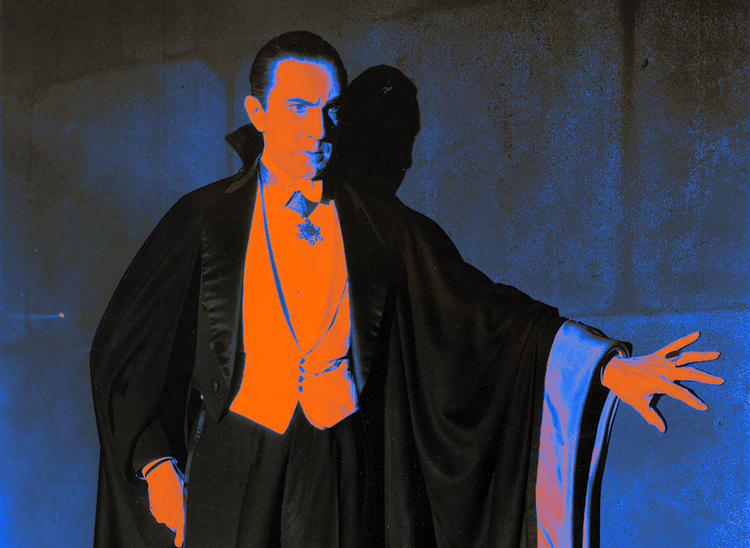
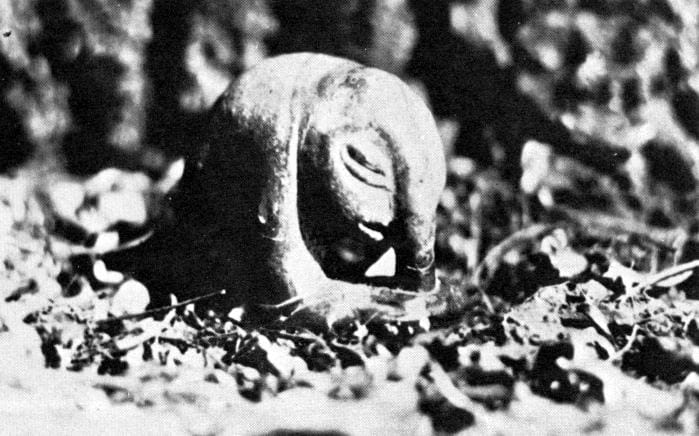
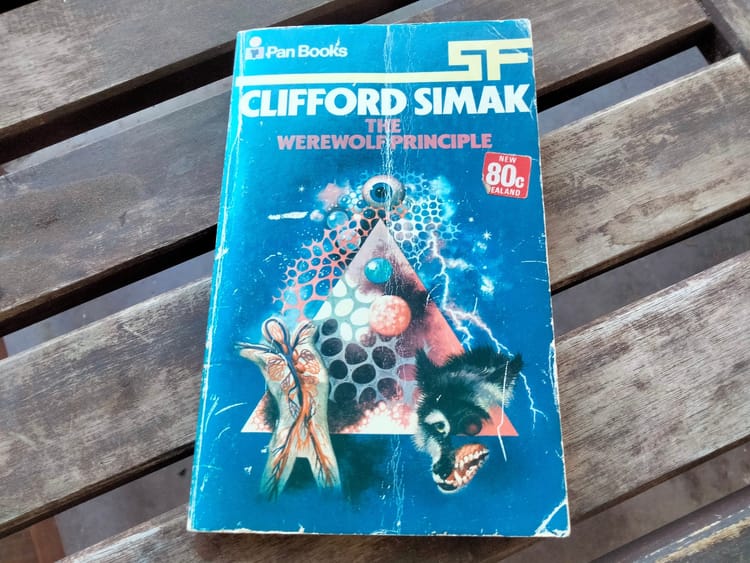

Member discussion